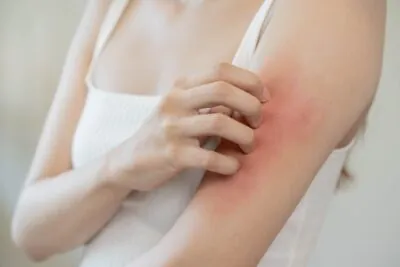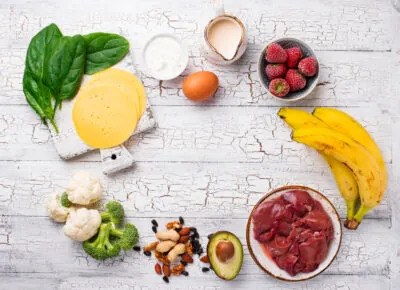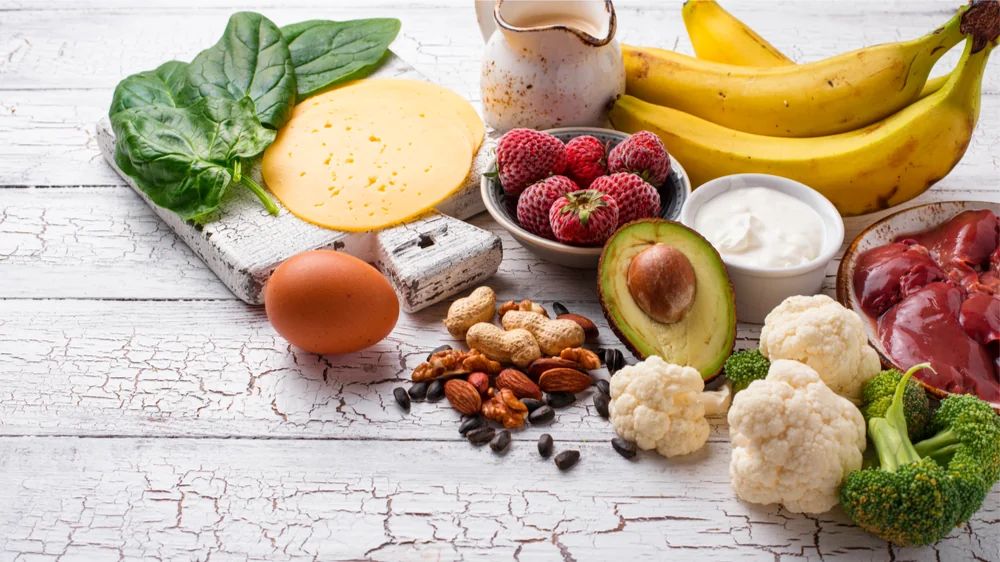Biotin: Side Effects and Benefits You Should Know About
Biotin, known as vitamin B7 or vitamin H, is fundamental to various bodily processes, including metabolism, pregnancy and breastfeeding, nervous system function, blood sugar regulation, and hair, skin and nail health. Today, we are going to explore this popular supplement.
Biotin is a key player in the metabolic breakdown of carbohydrates, fats, and proteins. As a coenzyme, it participates in many metabolic reactions, leading to the generation of glucose and fatty acids [1].
Biotin becomes particularly crucial during pregnancy and breastfeeding. It’s been found that these life stages can result in a relative deficiency of biotin, possibly due to increased demand [2].
Biotin contributes to the nervous system’s functioning, affecting neurotransmitter activity and aiding nerve signal conduction [3]. Additionally, it supports skin health, which is essential for sensory information processing [4].
Preliminary research suggests that biotin, usually paired with chromium, might assist in controlling blood sugar in people with type 2 diabetes [5, 6].
Does biotin promote hair growth?
Some studies suggest that biotin supplements may help fortify fragile nails and possibly hair [7]. However, while biotin is often marketed for hair growth, scientific evidence supporting this claim is somewhat limited.
Biotin is indeed a crucial part of the natural process of hair production: it’s essential for creating keratin, the protein that constitutes hair, skin, and nails. However, this doesn’t necessarily mean it promotes hair growth in people with normal biotin levels [8], and numerous factors, including genetics, diet, stress, and overall health, influence hair health and growth.
The assumed hair growth benefits of biotin mainly come from observing individuals with biotin deficiencies, which are quite rare but can lead to hair thinning and skin rashes. In these cases, biotin supplementation can help restore hair health [9].
However, it remains unclear whether additional biotin can significantly benefit hair health or growth in the general population with adequate biotin levels. A systematic review from 2017 underscored the lack of rigorous clinical trials exploring biotin’s effect on hair growth in healthy people [10].
Biotin side effects
Biotin is a water-soluble vitamin that is usually safe and well-tolerated, even at high levels of intake. The U.S. Food and Drug Administration (FDA) hasn’t established a recommended dietary allowance (RDA) for biotin [11], and it typically doesn’t cause side effects when used as recommended.
 However, high biotin levels can potentially distort the results of certain lab tests, like thyroid and other hormone tests, leading to incorrect results. This might result in misdiagnosis or improper treatment [12].
However, high biotin levels can potentially distort the results of certain lab tests, like thyroid and other hormone tests, leading to incorrect results. This might result in misdiagnosis or improper treatment [12].
There are also other potential side effects and considerations, namely the possibility of skin reactions. Biotin supplements, although rare, can cause skin rashes, typically due to allergic reactions [13].
Lastly, there are anecdotal reports from some people supplementing with biotin that it can lead to insomnia. Given that biotin is used by the body to turn fats and carbohydrates into energy, a high intake could lead to an energy boost. This could potentially make sleeping more difficult or even contribute to insomnia. To avoid any potential of this happening, it might be best to take biotin after getting up in the morning.
Foods rich in biotin
Biotin is abundant in multiple animal products. Liver and kidney, especially from beef, contain it. Salmon, sardines, and other fish are good sources, and pork, chicken, and turkey also provide biotin [14].
 Biotin can be found in milk, cheese, and yogurt. Egg yolks are also rich in biotin. However, raw egg whites contain a protein called avidin, which can hinder biotin absorption if regularly consumed [14].
Biotin can be found in milk, cheese, and yogurt. Egg yolks are also rich in biotin. However, raw egg whites contain a protein called avidin, which can hinder biotin absorption if regularly consumed [14].
Biotin can be found in almonds, walnuts, peanuts, sunflower seeds, and other nuts. Whole wheat bread, oats, and other whole grains contain significant biotin amounts. Avocados, sweet potatoes, spinach, broccoli, bananas, raspberries, and mushrooms contain varying biotin levels [14].
A diverse and balanced diet typically provides sufficient biotin for most people, and people with keratin-related issues should consult medical professionals to determine the root causes and judge whether or not biotin supplements are necessary.
Disclaimer
This article is only a very brief summary, is not intended as an exhaustive guide, and is based on the interpretation of research data, which is speculative by nature. This article is not a substitute for consulting your physician about which supplements may or may not be right for you. We do not endorse supplement use or any product or supplement vendor, and all discussion here is for scientific interest.
Literature
[1] Zempleni, J.; Wijeratne, S.S.K.; Hassan, Y.I. Biotin. Biofactors 2009, 35, 36–46
[2] Furukawa, Y. [Enhancement of Glucose-Induced Insulin Secretion and Modification of Glucose Metabolism by Biotin]. Nihon Rinsho 1999, 57, 2261–2269.
[3] Vitamins and Minerals: Their Role in Nail Health and Disease
[4] Zempleni, J.; Mock, D.M. Marginal Biotin Deficiency Is Teratogenic. Proceedings of the Society for Experimental Biology and Medicine 2000, 223, 14–21
[5] McKay, B.E.; Molineux, M.L.; Turner, R.W. Biotin Is Endogenously Expressed in Select Regions of the Rat Central Nervous System. Journal of Comparative Neurology 2004, 473, 86–96
[6] Lipner, S.R. Rethinking Biotin Therapy for Hair, Nail, and Skin Disorders. J Am Acad Dermatol 2018, 78, 1236–1238
[7] Romero-Navarro, G.; Cabrera-Valladares, G.; German, M.S.; Matschinsky, F.M.; Velazquez, A.; Wang, J.; Fernandez-Mejia, C. Biotin Regulation of Pancreatic Glucokinase and Insulin in Primary Cultured Rat Islets and in Biotin-Deficient Rats. Endocrinology 1999, 140, 4595–4600
[8] Patel, D.P.; Swink, S.M.; Castelo-Soccio, L. A Review of the Use of Biotin for Hair Loss. Skin Appendage Disord 2017, 3, 166–169
[9] Trüeb, R.M. Serum Biotin Levels in Women Complaining of Hair Loss. Int J Trichology 2016, 8, 73–77
[10] Lipner, S.R.; Scher, R.K. Biotin for the Treatment of Nail Disease: What Is the Evidence? J Dermatolog Treat 2018, 29, 411–414
[11] Biotin – Health Professional Fact Sheet
[12] Li, D.; Radulescu, A.; Shrestha, R.T.; Root, M.; Karger, A.B.; Killeen, A.A.; Hodges, J.S.; Fan, S.L.; Ferguson, A.; Garg, U.; et al. Association of Biotin Ingestion With Performance of Hormone and Nonhormone Assays in Healthy Adults. JAMA 2017, 318, 1150–1160
[13] Keller, E.B. Biotin and Skin Sensitivity. J Allergy (Cairo) 1942, 14, 87–88
[14] Zempleni, J.; Kuroishi, T. Biotin. Advances in Nutrition 2012, 3, 213–214



